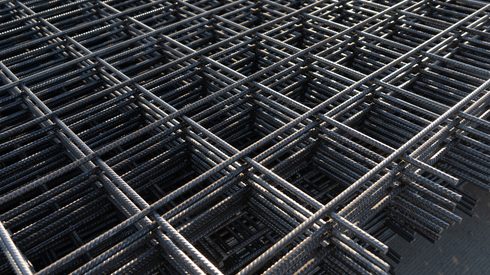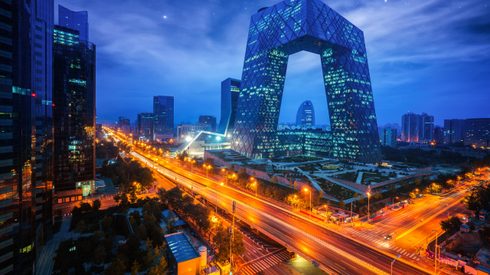The Department of Energy’s (DOE) $6 billion investment in projects to decarbonize energy-intensive industries and reduce industrial greenhouse gas emissions, announced on Monday March 25, was celebrated by the steel industry. The investment signals an impetus for the US to be at the forefront of the decarbonization arena, sources told Fastmarkets.
Funded by President Biden’s Bipartisan Infrastructure Law (BIL) and Inflation Reduction Act (IRA), the projects emphasize the highest-emitting industries, including steel.
The projects will contribute to phasing out more traditional carbon-intensive steelmaking methods that utilize coal. The DOE’s investment is anticipated to help create products like high grades of steel for the automotive industry.
“Today’s announcement by DOE is recognition of the leadership of the American steel industry in reducing greenhouse gas (GHG) emissions and producing the cleanest steel in the world,” Kevin Dempsey, president and chief executive officer of the American Iron and Steel Institute (AISI), said in a statement.
Dempsey added: “The American steel industry and the manufacturing sector as a whole have made significant investments in cleaner and more sustainable production processes.”
“[The investments] mean that finally there is momentum,” Isabel Estevez, deputy director of industrial policy and trade at Roosevelt Institute, told Fastmarkets on Monday. “The US has really been lagging vis-à-vis European competitors in this space. We’re seeing smart government action to break that stagnation towards green steel transition.”
“Hopefully that momentum translates to more of these kinds of investments,” Estevez added.
The DOE’s investment is a “catalyzing moment,” Hilary Lewis, steel director of Industrious Labs, told Fastmarkets on Monday.
“From a steel purchasers’ perspective, there’s going to be a rush to get this first run of green steel to come out of these facilities,” Lewis said.
“Thinking about it 5 to 10 years down the line, when more green steel will be available, it’s going to say a lot about the companies that are still buying dirty, coal-based steel,” Lewis added. “Companies are going to want to secure those contracts now so that they can have green steel in the future and not be burdened with dirty steel.”
Of the $6 billion spanning 33 projects in the DOE’s investment, $1.5 billion was awarded to six projects in the iron and steel industry.
Cleveland-Cliffs and SSAB Americas – both AISI members – were among the companies whose projects were selected for award negotiations.
Two decarbonization projects in Cleveland-Cliffs’ Middletown Works in Ohio and Butler Works in Pennsylvania were selected for award negotiations of up to $575 million in total funding from the DOE.
Cleveland-Cliffs leap toward a cleaner future
If successfully awarded, Cleveland-Cliffs would replace its blast furnace (BF) at its Middletown Works facility in Ohio with a 2.5 million tonne per year hydrogen-ready direct-reduced iron (DRI) plant and two 120-megawatt electric melting furnaces (EMF) to feed molten iron to existing infrastructure, including the basic oxygen furnace (BOF), caster, hot strip mill and various finishing facilities.
Middletown will maintain its existing raw steel production capacity of approximately 3 million net tons per year and will no longer use coke for iron production.
The EMF technology is well established and, together with the injection of hydrogen in BFs, is a preferred route for meaningful reduction in carbon emissions for integrated steelmakers worldwide.
The plant will then have the flexibility to be fueled by natural gas, which would decrease current ironmaking carbon intensity by over 50%.
“The investment at Middletown Works is confirmation that Cleveland-Cliffs is the benchmark for iron and steelmaking technology in the world, ahead of Japan, Korea, Europe and China,” Goncalves said on Monday. “Our experience in using natural gas has seamlessly catalyzed our transition into using hydrogen.”
Hydrogen has been dubbed “the future” of the steelmaker’s decarbonization drive, and the company announced in July 2023 that it began charging a $40 per net ton surcharge – called the “Cliffs H surcharge” – on steel products made with hot-briquetted iron (HBI), a low-carbon iron feedstock used in blast-furnaces (BFs), basic oxygen furnaces (BOFs) and electric-arc furnaces (EAFs).
The steelmaker said in January that it has expanded the scale of the ongoing hydrogen injection trial at its Indiana Harbor No7 BF. For the trial, the company is using HBI as feedstock and injecting hydrogen into the BF as a reductant and fuel source.
Meanwhile, at the Butler Works facility in Pennsylvania, upon successful award negotiations, Cleveland-Cliffs would replace two of its natural-gas-fired high-temperature slab reheat furnaces with four electrified-induction slab reheat furnaces to maximize efficiency in its electrical steel production, a critical component of the electrification of America and the greening of the electrical grid.
SSAB Americas lead effort decarbonize steel industry
SSAB Americas has also been selected for award negotiations for the potential construction of a hydrogen breakthrough ironmaking technology (HYBRIT) manufacturing facility, which can produce fossil-free iron by using green hydrogen instead of fossil fuels.
The project will also explore the possibility of expanding the capacity and capability of SSAB’s steel manufacturing operations in Montpelier, Iowa, including increased use of renewable energy.
SSAB’s HYBRIT technology “virtually eliminates” CO2 emissions in steel production, SSAB previously said.
“We are pleased to see that the US Department of Energy has selected [Steel Manufacturers Association (SMA)] member SSAB Americas for a major investment in low-emissions steelmaking. We welcome investment in the decarbonization of heavy industry,” Philip Bell, president of the SMA said in a statement sent to Fastmarkets on Monday.
“SSAB Americas and its fellow SMA members have led the effort to decarbonize the steel industry for decades, and they have invested billions of dollars of their own capital to help make the American steel industry the envy of the world,” Bell said.
The other three projects were awarded to Vale USA (up to $282.9 million), United States Pipe and Foundry Company (up to $75.5 million) and AMERICAN Cast Iron Pipe Company (up to $75 million).
“These investments will allow companies to make needed upgrades and reduce pollution while also helping our manufacturing base compete globally,” United Steelworkers International president David McCall said on Monday.
We provide more than 250 steel prices, including industry benchmarks from across the globe. Fastmarkets’ steel price data combines the intelligence of industry-leading brands such as Metal Bulletin, American Metal Market, Scrap Price Bulletin and Industrial Minerals. Talk to us about our steel price data options today.







